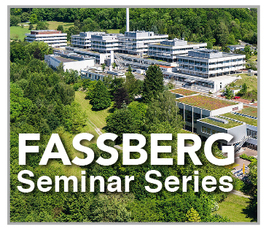Fassberg Seminar Series: Increasing complexity of human proteome: from alternative splicing to alternative translation
Fassberg Seminar Series
- Datum: 12.02.2018
- Uhrzeit: 11:00 - 13:00
- Vortragende(r): Prof. Dr. Zefeng Wang
- CAS-MPG Partner Institute of Computational Biology Shanghai, China
- Ort: Max-Planck-Institut für biophysikalische Chemie (MPIBPC)
- Raum: Large Seminar Room
- Gastgeber: Reinhard Lührmann
- Kontakt: juliane.moses@mpibpc.mpg.de

The majority of human genes undergo alternative splicing to produce multiple isoforms with distinct functions, which is a major mechanism to increase proteome complexity of human genome. This process is tightly regulated, and misregulation of splicing is closely associated with various human diseases. We have been focused on systematic study of splicing regulation, as well as the dysregulation of alternative splicing in cancers. We have developed a series of new methods to identify and study the regulatory cis-elements and trans-acting splicing factors, and seek to assemble such information into a predictive “splicing code” to help us understand how the alternative splicing is controlled in different cell types and in different disease stages. We especially interested in splicing factors that regulate cancer associated splicing events. In addition, we have also focused on the regulation and new function of circular RNAs, which are produced by non-canonical alternative splicing events known as back-splicing. We found that a large fraction of circular RNAs can function as mRNA to code for proteins, and the translation of circRNA can be driven by diverse sequences. This finding expanded the coding capacity of human genome.